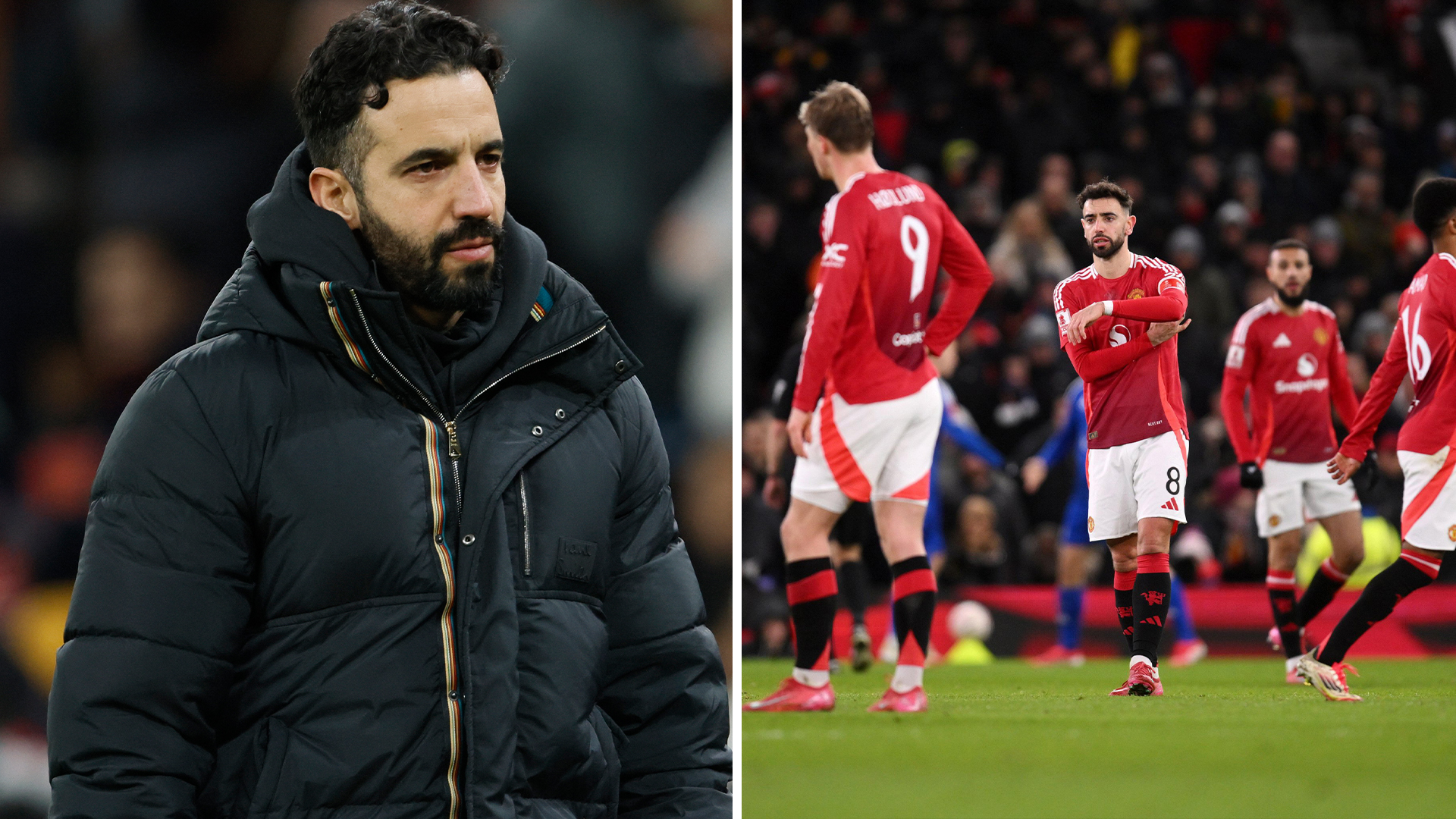The hallowed grounds of Old Trafford, famously dubbed the “Theatre of Dreams,” have recently seen more moments of head-scratching than celebration. As Manchester United navigates the nascent stages of the Premier League season under new manager Ruben Amorim, the narrative is less about dazzling performances and more about persistent questions. A recent 1-1 draw against Fulham, marked by a frustrating penalty miss from captain Bruno Fernandes and an own-goal for their sole point, underscores a challenging start that leaves the club languishing with just one point from two games, and, rather remarkably, zero goals scored by their own players.
The Fulham Fiasco: A Microcosm of Deeper Issues
Sunday`s encounter at Craven Cottage was, for many United faithful, a familiar tale of glimpses of promise overshadowed by glaring inefficiencies. Amorim`s tactical blueprint, aiming for a fast-paced, possession-dominant approach, did indeed show flashes. The attack, featuring new signings like Matheus Cunha, moved with a newfound urgency, creating chances that, on another day, might have led to a comfortable lead. Bernd Leno’s heroics in goal for Fulham, coupled with the woodwork, certainly played their part in denying United a breakthrough.
However, football is a game of two halves, both literally and figuratively. While United controlled the ball and pushed forward with intent, their out-of-possession structure, particularly in midfield, appeared as permeable as a leaky sieve. Defensive vulnerabilities, a recurring nightmare for the Red Devils in recent seasons, allowed Fulham to carve out dangerous opportunities, reminding everyone that while the attack is getting an overhaul, the foundations at the back remain somewhat shaky. It`s an equation that simply doesn`t add up to consistent victories in the unforgiving Premier League.
Bruno Fernandes: The Captain`s Tactical Quandary
A significant talking point, and perhaps a microcosm of Amorim`s tactical adjustments, revolves around Bruno Fernandes. The arrival of dynamic forwards like Cunha and Bryan Mbeumo has, by design or necessity, pushed Fernandes deeper into midfield, often alongside Casemiro. On paper, this might seem like an attempt to leverage his passing range and vision from a deeper position. In practice, it creates a significant dilemma: while Fernandes`s creative spark is undeniable, his defensive contributions, or lack thereof when playing in a deeper two, leave United precariously light in the engine room. This tactical shift exposes the backline, turning midfield battles into open invitations for opposing teams, something Fulham exploited with clinical precision.
“I think we can do better, but we are putting in the effort, so that is the most important thing to me. I think in some moments that we did well, especially in the beginning of the game, and I felt that after the goal we were thinking about the result, just the result, and this team needs to win the game. We need to focus on the performance of what we need to do because if we think about the results, we forget to do the normal things.”
— Ruben Amorim, reflecting on the match
Amorim`s post-match comments underline the immense psychological pressure gripping the squad. He articulates a philosophy centered on process over outcome, urging his players to focus on their performance rather than the daunting specter of the result. It`s a pragmatic approach, but one that is incredibly challenging to implement when the historical weight of Manchester United, combined with recent failures (a Europa League final loss, missing out on Champions League qualification), hangs heavy in the air. The “Theatre of Dreams” can quickly become a “Theatre of Dread” when expectations are not met.
The Amorim Mandate: Adapt or Be Benched
One thing is clear: Ruben Amorim is not afraid to make tough decisions. His tenure, though brief, has already signaled a willingness to bench players who do not align with his vision or meet his exacting standards. He demands a team that plays with possession, pushes the tempo, and takes the initiative. The missed penalty from Fernandes, while just one moment, symbolizes the fragility that permeates the club right now. Such missed opportunities become magnified when the team is starved of genuine momentum.
The road ahead for Amorim is undeniably arduous. Improving a team that finished a dismal 15th last season, and then immediately facing the relentless pressure of a new campaign, is a Herculean task. The initial luster of new signings often fades quickly if results don`t follow. Solutions might lie in nurturing promising academy talents, like Kobbie Mainoo, who could offer fresh legs and perhaps a temporary immunity to the suffocating pressure. However, the manager must first discover his optimal starting XI – a balance that has proven elusive in these opening fixtures.
Time, as they say, waits for no one, and at Manchester United, it moves at an accelerated pace. The urgent need for that inaugural Premier League victory of the season is palpable. Failure to secure it soon risks intensifying the pressure to a breaking point, potentially unravelling the delicate rebuilding efforts even further. The stage is set; the world watches to see if Amorim can truly transform the Theatre of Dreams back into a place of triumphant performances.

